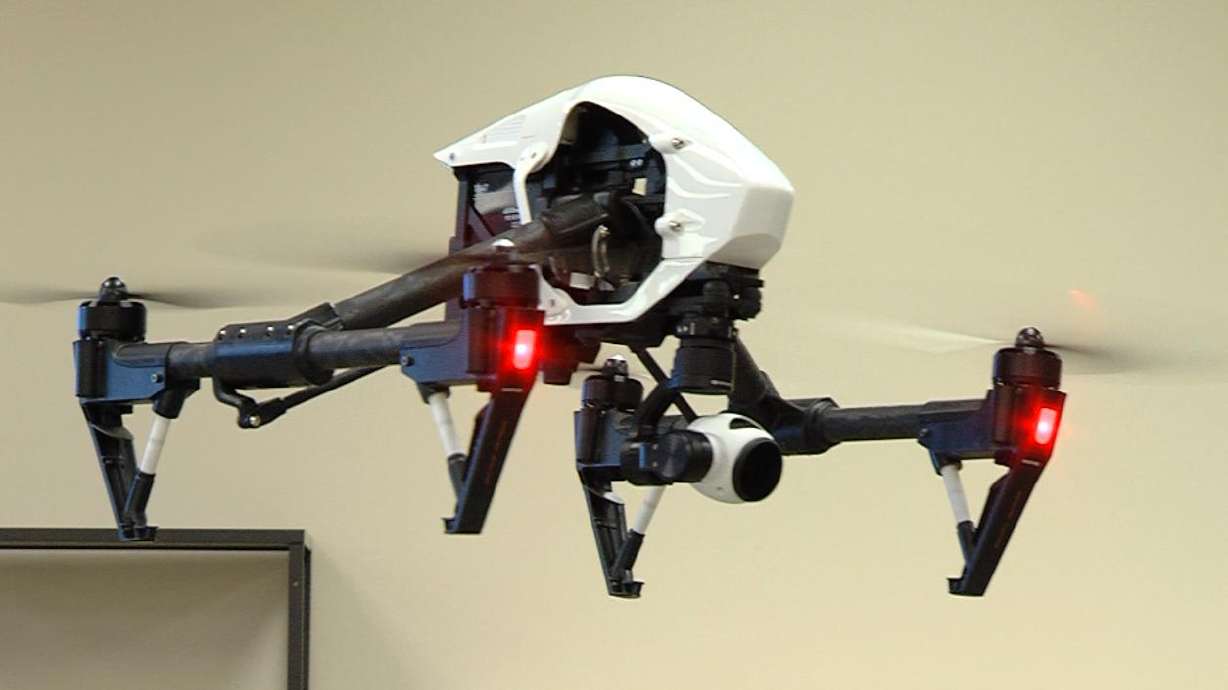Estimated read time: 2-3 minutes
This archived news story is available only for your personal, non-commercial use. Information in the story may be outdated or superseded by additional information. Reading or replaying the story in its archived form does not constitute a republication of the story.
SALT LAKE CITY — Operators and advocates of drones urged Utah lawmakers Wednesday to not stifle the emerging industry with too much regulation.
"Let's not, Utah, miss the opportunity here because we regulate too heavily," Adam Robertson, chief technology officer at Provo-based Fortem Technologies, told the Transportation Interim Committee.
State legislators continue to grapple with laws on unmanned aerial systems as the Federal Aviation Administration prepares to issue it first set of rules for small, unmanned systems that weigh less than 55 pounds. The Legislature considered several bills last year — none of the more comprehensive proposals passed — and anticipate more in 2017.
Tom McMahon, vice president of advocacy and public affairs for Association for Unmanned Vehicle Systems International, told the committee states typically already have laws prohibiting voyeurism and trespassing that can be applied to drones. He said there's no reason to single out any type of technology.
He noted that the FAA has jurisdiction over the airspace, while states may deal with issues such as mounting weapons on drones or using them for hunting and fishing and police surveillance.
House Minority Leader Brian King, D-Salt Lake City, said he doesn't believe the committee intends to regulate the technology but wants to let it develop while keeping eye on behavior that could jeopardize public safety.
Drone operators and academics told the committee they don't oppose regulations but want them to be sensible and appropriate.
Marshall Wright, of the Mountain West Unmanned Systems Alliance, said the current patchwork of laws are confusing and frustrating for businesses trying to get off the ground.
"This is a developing industry," he said. "The technology is moving at light speed right now."
Mac McKee, director of the Utah Water Research Laboratory at Utah State University, said the moving regulatory target makes technology advances difficult. He said it took 15 months for AggieAir to get permission from the FAA to fly over Fish Lake for a state algae monitoring project.
"In Utah, we have tremendous capability," he told the committee.
David Terry, owner of SilverHawk Aerial Imaging, said already strict guidelines for commercial operators make it hard to foster an agile, profitable business. He said it would be best for the FAA to set standards for professionals and regulate the industry.
The company struggles to create a distinction between what it does and operators who don't follow or understand flight rules, Terry said. Those "bad actors," he said, create problems for legitimate operators.
To date, the FAA has granted 39 entities in Utah permission to fly commercial drones for a host of purposes, including aerial photography, real estate, construction and filmmaking. Wright estimated that accounts for a few hundred jobs.
The Association for Unmanned Vehicle Systems International estimates the drone industry in Utah would add $859 million and 1,085 jobs to the state's economy in the first decade after the FAA finishes making rules for all types of drones.









